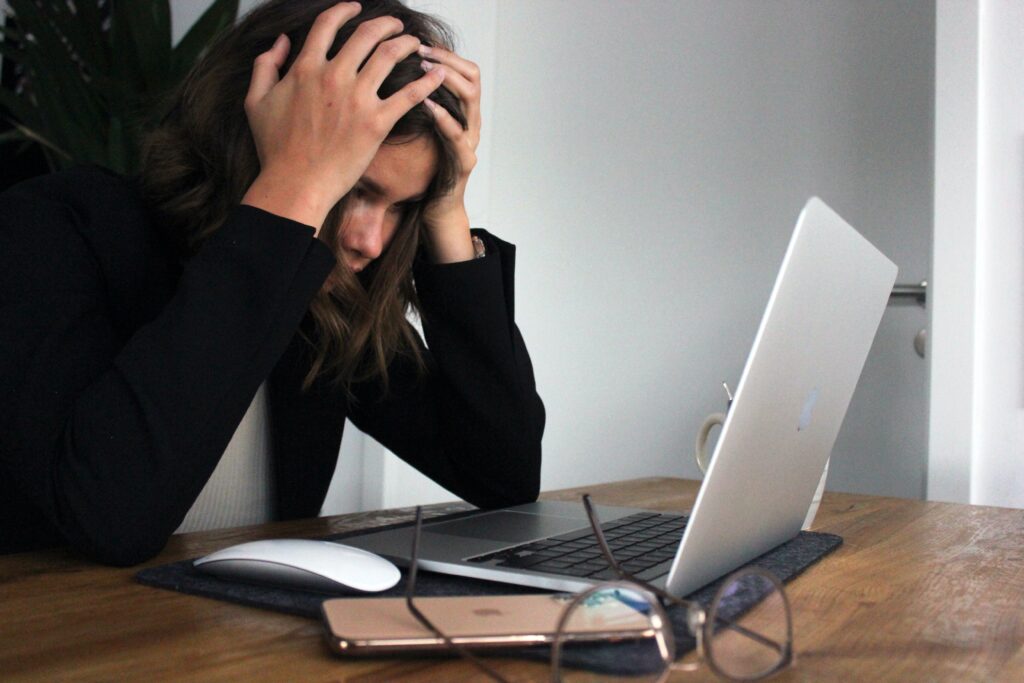Are you stressed? Are you anxious? Do you worry about when these intense feelings will end? I am here today to tell you that even though stress is very debilitating, it doesn’t last forever. Being stressed is a normal part of life and stress in small amounts can actually be helpful. However, when stress escalates and is prolonged, we can find ourselves unable to de-stress. So let’s try not to get to that state in the first place! Here is a guide to what NOT to do when you’re feeling stressed out.

1. Drink too much.
According to Drinkaware, drinking too much can lead to depression.
https://www.drinkaware.co.uk/facts/health-effects-of-alcohol/mental-health/alcohol-and-stressThe brain relies on a delicate balance of chemicals and processes. Alcohol is a depressant, which means it disrupts that balance negatively.
The more alcohol you drink, the greater the effect it has on your brain function and – potentially – your mental health. Regardless of the mood you’re in before drinking, alcohol’s effect on the brain can lead to feelings of being less inhibited, depression, aggression, anger, anxiety – or stress.
If you find yourself stressed out and reaching for a bottle of wine or a beer every time things go wrong in your life, it might be time to take a step back from alcohol. While alcohol may help you unwind at the end of the day, it can have negative effects on your body if used regularly or heavily enough that it becomes an addiction.

2. Act like you don’t have emotions.
When you are stressed it is important to not act like you don’t have any emotions at all. Don’t ignore your feelings or pretend they aren’t there. I often say that you can throw anything under the rug, but eventually someone will move that rug and all of your stress will appear. It is beneficial to you and your future friendships and relationships to deal with stress now. This is to prevent it from rearing its ugly head later on in life, often when you least expect it.

Acting like you don’t have any emotions will only make things worse, because it will prevent you from being able to express yourself properly and solve problems effectively. If people can’t read your emotions and body language well, then they won’t be able to help you with whatever situation it is that is causing stress in your life.
3. Work too much.
The Harvard Business review discusses how being a workaholic is bad for your mental health:
Unlike people who merely work long hours, workaholics struggle to psychologically detach from work. And we know that ongoing rumination often goes together with stress, anxiety, depression, and sleep problems, and it impedes recovery from work. Stress levels in workaholics are therefore often chronic, which leads to ongoing wear and tear on the body.
https://hbr.org/2018/03/how-being-a-workaholic-differs-from-working-long-hours-and-why-that-matters-for-your-health
Workaholism is a real thing. In fact, it’s a widely accepted diagnosis among psychologists and psychiatrists. Workaholics tend to rely on their jobs for their self-worth and happiness, which can lead to unhealthy coping mechanisms like drinking or drug use. In turn this can and often leads to anxiety and depression.

A friend once told me that every time they had a fight with their significant other, they would retreat to their home office and do work. It was a way that they could escape the stress of the relationship. Over time the relationship eroded and the friend became less productive in their work (due to the stress). Being a workaholic to cover stress is never the answer. It just minimises the immediate threat of the stress while the symptoms of the stressful situation still remain.
So how do you know if you’re a workaholic? The easiest way is by asking yourself if your job controls your life (for example, checking your phone 24/7 for work related information), if it negatively impacts other areas of your life (not spending time with family) or if it causes stress in other areas of life (making excuses for why you can’t hang out). If so, then perhaps it’s time to take action!
4. Exercise until you’re exhausted.

Right at Rain by UW Medicine asks the questions, is it possible to exercise too much? Apparently, it is:
“The main training errors that occur are poor prior conditioning and trying to do too much, too fast,” says Brian Liem, M.D., a physician at the Sports Medicine Center at Husky Stadium.
When this happens, you can seriously injure yourself. And we’re not just talking about the typical muscle soreness that leaves you waddling around after a particularly tough workout.
“Signs that you’re exercising too much are when you have pain that’s not a good sort of sore,” Liem explains. “It’s the kind of pain that prevents you from doing daily activities. If you need to bend down to tie your shoe and you start second-guessing it due to your pain, then you’ve probably pushed too far.”
Liem also suggests that over exercising can lead to depression and anxiety. It’s always better to do everything in moderation, including exercising.
“With overtraining syndrome, your performance decreases, exercise doesn’t feel fun anymore and there’s a potential for developing associated psychological symptoms such as anxiety and depression,” Liem says
https://rightasrain.uwmedicine.org/body/exercise/can-you-exercise-too-much

Exercise is one of the best things you can do to improve your mental health. When you feel yourself becoming stressed, exercising can help lower levels of stress hormones like catecholamines and cortisol in your body. However, exercise should never be used as a way to punish yourself or cope with difficult emotions that are outside of your control. Exercising intensely can also lead to increased anxiety and depression because it makes you feel physically exhausted—which means it’s harder for you to deal with stressful situations throughout the day.
I know as a busy mum to a toddler, if I just try and exercise the stress away, it will leave me so exhausted that I can’t deal with the toddler tantrums or the big feelings that my toddler is experiencing. As a mum I have to find balance and exercising should be beneficial to me in my parenting journey and not harmful in anyway.
5. Ignore it and hope it goes away
Don’t ignore it and hope that it will go away. If you do this, you are ignoring the problem, which is actually part of the problem itself. Ignoring a problem does not make it go away; if anything, ignoring a problem can make things worse because when you ignore something for too long, the problem will become even harder to deal with.
Ignoring your stress will also make you more stressed because stress levels rise while we are consciously trying not to think about something (like our stressful situation). The more we try not to think about something, the more our brains wants us to think about it—and it doesn’t care how much we hate ourselves for doing so!

After a sudden break-up of a short-term relationship left me stressed, I decided to ignore it and thought that hopefully it would not have too much affect on me. I was wrong. Ignoring the stress and hoping that it would just go away, only led me to some unhealthy coping mechanisms and behaviours. I dated people after that who were not good for me and who I would not have even considered dating if I wasn’t stressed out. Being brave enough to deal with stress and not just hoping it goes away will benefit you in the long run. It helps you to have a happier, more content life. Who doesn’t want that? Happiness is not something that we should take for granted but something that we need to work towards each day and with each decision we make. Choose happiness and don’t let stress get the better of you.

By finding healthy ways to deal with stress and anxiety, you can have more hope, joy, and peace in your life. I hope that after reading this, you’re able to recognise some of your unhealthy coping habits and make changes. Remember: it’s not always easy to face our problems head-on, but we can do it if we take one step at a time. You don’t have to be perfect! Just keep working on yourself and finding healthier ways to deal with stress and anxiety—and in turn you will feel happier, more hopeful, and more peaceful every day.


One response to “The Top 5 things you shouldn’t do when stressed”
[…] RELATED POST: The Top 5 things you shouldn’t do when stressed […]